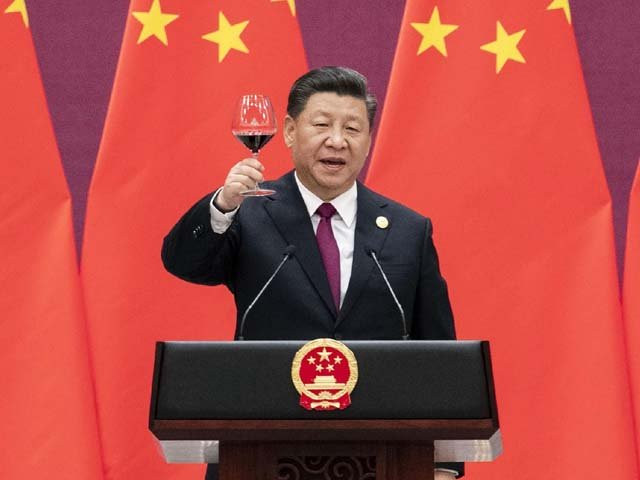Bloomberg published a story earlier this month about how “Lawmakers in Eight Countries Form New Alliance to Counter China”, which reported on the creation of an international network between senior lawmakers in Australia, Canada, Germany, Japan, Norway, Sweden, the United Kingdom (UK), and the United States (US) that calls itself the Inter-Parliamentary Alliance On China (IPAC). The outlet also shared a Twitter video where some of IPAC’s leading members condemned the “global challenge” that they said China poses and vowed to “coordinate” their response to it. Considering the Indian government’s antagonistic policies towards China, some of its parliamentarians might prospectively join IPAC in the coming future, though that still remains to be seen.
In any case, this development signifies the official member countries’ intent to return to outdated Cold War-era politics despite some of their colleagues previously accusing China of being the one that wants a so-called “new cold war”. China, however, has always spoken out against bloc-based mentalities and has never sought to create an international network aimed against any other country. Its Belt and Road Initiative (BRI), which is a common subject of criticism from some of those countries, is all-inclusive and mutually beneficial, not exclusive and hostile.
The contrast between China’s approach to International Relations and the one that those parliamentary representatives are advocating for couldn’t be clearer since BRI is the antithesis of everything that the IPAC represents. The People’s Republic recognises that a new era is dawning, which presents unprecedented possibilities for international cooperation through improved connectivity, though some countries have a self-interested stake in delaying this inevitable development for as long as possible so as to retain their disproportionate influence over the global system.
The creation of the IPAC, meanwhile, is an attempt to divide the world and thus pressure the member countries’ other international partners such as India to choose a side, preferably their own. This is a false choice that needn’t be foisted upon the international community because it’s entirely possible for all countries to have constructive relations with one another without doing so to the detriment of any third party. Nevertheless, the Cold War fever that’s spreading throughout some Western governments has disillusioned some decision makers into thinking otherwise.
It’s not just for ideological reasons that some of these officials are against China, but arguably for financial ones too. A “new cold war” could be just as, if not more, profitable for their influential military-industrial complexes as the original one was. Given the economic crisis that the Covid-19 global pandemic caused in the countries represented in the IPAC, their anti-Chinese politicians might be interested in having their military-industrial complexes attempt to take the lead in reviving their economies at the expense of other industries.
Should that be part of their motivation in seeking to “counter” China through the creation of a new Cold War-era bloc, then they’d be sorely mistaken. Economic growth is generated by countries peacefully trading with one another, not aggressively building up military stockpiles against their perceived rivals. The IPAC countries aren’t of course considering building entire national economies on arms production alone, but their military-industrial complexes do have a history (especially in the US) of exercising outsized political influence.
Other lobbies fear losing their traditional influence as a result of the system of free and fair trade that characterised the global economy prior to the global pandemic, hence why they have an interest in pressuring their governments to restrict trade with China and the investments that come from that country. What they seemingly intend to do is gradually replace the role that China used to play in their economies with a portfolio of one another’s companies instead, thus creating a hybrid military-economic bloc against China.
Other countries are likely watching this process unfold with serious concern since IPAC’s de-facto American leader had recently fearmongered about the scenario of China economically punishing its BRI partners for political reasons yet this nascent bloc’s members are the ones that are punishing China for that exact same reason. This objective observation doesn’t inspire trust in the IPAC’s intentions. It also reveals that while its hostility is presently directed against China, it might eventually be directed against others some day too, including countries like India that thus far haven’t officially joined this anti-Chinese organisation.
The Inter-Parliamentary Alliance on China is a hostile Cold War-era creation
It’s not just for ideological reasons that some of these officials are against China, but arguably for financial ones

China's President Xi Jinping during a welcome banquet. PHOTO: AFP


COMMENTS
Comments are moderated and generally will be posted if they are on-topic and not abusive.
For more information, please see our Comments FAQ